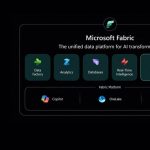What does it take for modern-day enterprises to retain their market dominance? It takes more than just traditional strategies to stay ahead in the face of ongoing industry changes and shifting consumer preferences.Organizations generate oceans of data every day. But processing them is particularly challenging. From data silos to outdated systems, accessing information in real-time becomes a daunting task, which slows down the pace of decision-making, making it complex and expensive.
Integrating multiple vendor solutions often fragments modern data structures, impeding the flow of information and draining organizational resources in terms of time and productivity. Decisions about cloud providers, governance, processes, cost structures, security, and extraction, storage, transformation, and reporting must be taken at every stage of the data ecosystem measures, and sustainability. Business leaders face challenges consolidating disparate data sources, mitigating security risks, enhancing agility, and delivering value, all while keeping a tight rein on expenditures.
Let me introduce you to Microsoft Fabric, a comprehensive analytics solution that combines business intelligence, data science, real-time analytics, and data migration into a single framework. Collaboration is easier and making real-time, data-driven business decisions is simplified, and unified storage (OneLake) where information is available to everyone. IFI Techsolutions, a trusted Microsoft partnerwith deep Azure expertise, optimizes data management through tailored Microsoft Fabric solutions, seamlessly integrating with existing Microsoft tools. With organizational data under one umbrella, built-in governance and organization-wide guidelines, data professionals can easily run comprehensive calculations and report findings all in one platform.
Data Integration in Microsoft Fabric
Unified Data Platform
Microsoft Fabric unifies data tools like Azure Synapse Analytics and Power BI into a single platform, streamlining data management, transformation, and analysis. This integration simplifies workflows, reduces complexity, and boosts productivity for data professionals.
2. Data Ingestion
Microsoft Fabric offers flexible data ingestion, supporting structured data from databases, unstructured data like files and logs, and streaming data from IoT devices. This versatility enables comprehensive data consolidation for enhanced analysis and decision-making.
Ready to get started?
As a Microsoft partner, we’re uniquely positioned to help you navigate the emerging AI landscape.
3. Data Transformation and ETL
Microsoft Fabric provides powerful ETL capabilities, using Power BI dataflows for simple tasks, Azure Data Factory for complex workflows, and Jupyter notebooks for custom transformations. These tools ensure data is cleansed, prepared, and ready for analysis.
4.Data Storage and Lakehouse Architecture
Microsoft Fabric uses a Lakehouse architecture, combining scalable data lakes with high-performance data warehouses. This hybrid approach enables efficient handling of diverse data types, supporting both large-scale storage and optimized analytics for various workloads.
5. Data Modeling
Microsoft Fabric offers robust data modeling tools like Power BI for semantic models and Dataverse for a common data model, ensuring data consistency and integration. These tools enable meaningful data structures for accurate and insightful analytics.
6. Data Security and Governance
Microsoft Fabric emphasizes data security with Role-Based Access Control (RBAC) for precise permissions, encryption for data protection, and compliance tools to meet regulations like GDPR and HIPAA, ensuring secure and compliant data management.
7. Collaboration and Sharing
Microsoft Fabric boosts collaboration through shared workspaces, enabling teams to work together on datasets and reports. Secure data sharing allows users to distribute insights within or outside the organization, fostering collaboration and ensuring access to key information.
8. AI/ML Integration
Microsoft Fabric integrates AI and machine learning, offering built-in models for tasks like text analysis and image recognition, alongside tools for custom model creation using Azure Machine Learning, enabling advanced analytics and enhanced insights.
9. Performance Optimization
Fabric enhances performance for large-scale data operations with auto-scaling capabilities, dynamically adjusting resources to meet workload demands. It includes performance tuning tools for optimizing queries and monitoring system performance, ensuring efficiency and responsiveness.
10. Integration with Microsoft Ecosystem
Fabric integrates smoothly with Microsoft services, enhancing usability. It connects with Microsoft 365 for data analysis using familiar tools like Excel and Teams, while deep integration with Azure expands its data management and analytics capabilities.
11. Extensibility
Fabric offers extensibility through APIs and custom connectors, allowing integration with non-native data sources. This flexibility enables users to tailor the platform, automate workflows, and develop custom solutions for diverse data analysis needs.
In a rapidly evolving business landscape, IFI Techsolutions empowers organizations with tailored Microsoft Fabric solutions. By leveraging its Azure expertise and comprehensive data management capabilities, IFI Techsolutions ensures businesses can effectively consolidate data, enhance decision-making, and maintain a competitive edge through efficient, integrated analytics.











